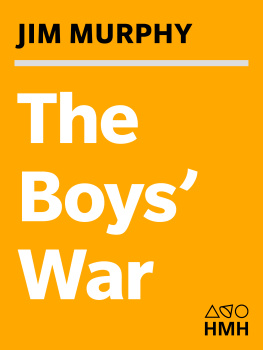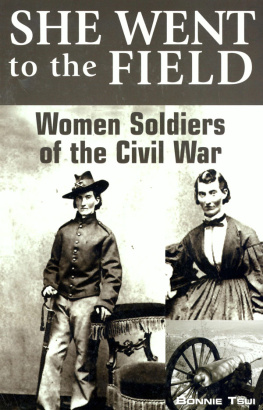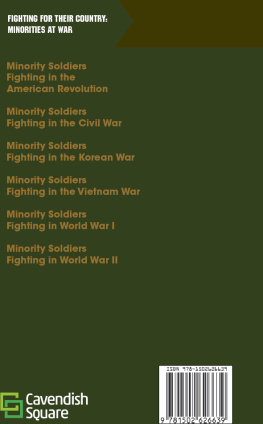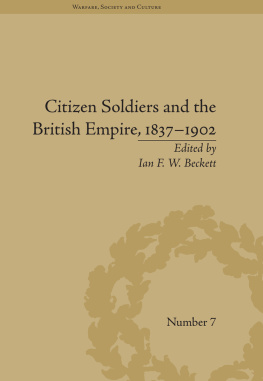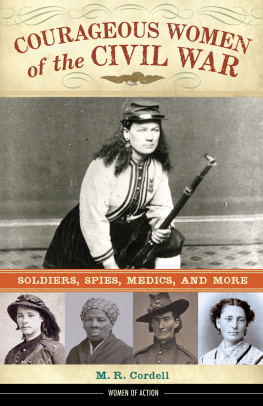Thank you for buying this ebook, published by NYU Press.
Sign up for our e-newsletters to receive information about forthcoming books, special discounts, and more!
Sign Up!
About NYU Press
A publisher of original scholarship since its founding in 1916, New York University Press Produces more than 100 new books each year, with a backlist of 3,000 titles in print. Working across the humanities and social sciences, NYU Press has award-winning lists in sociology, law, cultural and American studies, religion, American history, anthropology, politics, criminology, media and communication, literary studies, and psychology.
ACROSS THE DIVIDE
Across the Divide
Union Soldiers View the Northern Home Front
Steven J. Ramold
NEW YORK UNIVERSITY PRESS
New York and London
www.nyupress.org
2013 by New York University
All rights reserved
References to Internet websites (URLs) were accurate at the time of writing. Neither the author nor New York University Press is responsible for URLs that may have expired or changed since the manuscript was prepared.
LIBRARY OF CONGRESS CATALOGING-IN-PUBLICATION DATA
Ramold, Steven J.
Across the divide : Union soldiers view the northern home front / Steven J. Ramold.
pages cm
Includes bibliographical references and index.
ISBN 978-0-8147-2919-9 (cl : acid-free paper)
ISBN 978-0-8147-6017-8 (ebook)
ISBN 978-0-8147-6037-6 (ebook)
1. United States. ArmyHistoryCivil War, 1861-1865. 2. United StatesHistoryCivil War, 1861-1865Social aspects. 3. SoldiersUnited StatesSocial conditions19th century. 4. Civil-military relationsUnited StatesHistory19th century. 5. Northeastern StatesSocial conditions19th century. I. Title.
E491.R358 2013
973.74dc23
2012045596
New York University Press books are printed on acid-free paper, and their binding materials are chosen for strength and durability. We strive to use environmentally responsible suppliers and materials to the greatest extent possible in publishing our books.
Manufactured in the United States of America
10 9 8 7 6 5 4 3 2 1
For Paula
Acknowledgments
A number of people have made this book possible, and their contributions are deeply appreciated. From Eastern Michigan University, I would like to thank the Provosts Office for providing a Faculty Research Fellowship that granted a semester of release time to complete the original draft of the manuscript. Several members of the Department of History & Philosophy also deserve a great deal of thanks, especially Department Head Kate Mehuron for the departments generous research support, and two colleagues, John McCurdy and Richard Nation, for reading and commenting on various portions of the original draft. A number of librarians and archivists also deserve mention for their generous assistance, especially Jeff Flannery at the Library of Congress and Don Pfanz at the Fredericksburg and Spotsylvania National Military Park. Lastly, my wife Paula deserves the biggest thanks of all, for her constant support, encouragement, and proofreading skills.
Introduction
The people up North do not know what war is, John Brobst, a Union Army private from Wisconsin, wrote a friend. If they were to come down here, they would soon find out the horror of war.
Union soldiers left their homes expecting to fight their Confederate enemies, but clashes with family and communities at home emerged unexpectedly. The issues that divided soldiers and the Union home front were numerous, complex, and long-lasting. While some issues emerged only during certain periods of the war, others caused friction for the duration of the war. Several themes emerge when considering the perception held by Union soldiers of home communities. First, soldiers tended to lash out at things about which they could not immediately do anything. Soldiers at the front, unable to return home, felt frustrated at their inability to influence events. Consequently, their only recourse was to encourage certain courses of action, liberally share their own opinions, or threaten retaliation when they could get home. Next, soldiers shared the opinion that the current national emergency justified strong actions. The expectations and demands soldiers placed on civilian communities often defied traditional political and social norms, but soldiers justified such actions in the name of saving the Union and defeating the Confederacy. This included threats of violence against the worst offenders of soldier expectations, threats that would never receive popular sanction in peacetime. Soldiers could sustain their demands only by recognizing a gulf between us and them, as soldiers understood that as long as the war lasted, they were members of a separate army community. The success of their new community was vital if the nation was to survive, the war was to come to a successful conclusion, and they were to emerge from the fight alive.
The most important theme, however, was the disconnection between perception and reality. While accurately assessing most national issues, soldiers generated some inaccurate beliefs and conclusions about others, usually as the result of incomplete information and viewing events through the lens of their own experiences. Consequently, soldier reactions, to both contemporary and modern observers, can seem reactionary and erroneous. Although soldiers generated incorrect perceptions of civilian activities, the situations in which they found themselves explain the defensive postures adopted by them. Operating in a separate sphere and undergoing great personal risks, soldiers shaped their own view of civilian behavior. Tasked with saving the Union by risking their lives, soldiers held misinformed views regarding the nature and extent of civilian actions and beliefs, but their reactions to civilian behaviors represented the views of those acting most directly to win the war. What soldiers believed may not have been correct, but their beliefs were what they acted upon. Therefore, despite their misplaced opinion, what Union soldiers had to say about civilian actions merits closer study as it reflected the direction of the army and the war. That is not to suggest that all soldiers always disagreed with all civilians. Quite the contrary, the mass of published Civil War histories reveals a broad spectrum of support, enthusiasm, and concern for the plight and sacrifices of Union soldiers. At crucial times of the war and on specific issues, however, soldier and civilian beliefs diverged, and a study of that diversion is necessary to understand how the social and political outcomes of the Civil War came about.
The misunderstanding and ideological separation that existed between Union soldiers and the different civilian communities was the result of various divides between soldiers and noncombatants. The most obvious divide was the physical one, the separation of soldiers from their families and communities by long distances. For most young men, military service created the first opportunity to leave their hometowns and undergo new experiences. The early war excitement induced many men to volunteer as soldiers, but recruits soon found their new lives much different from their old lives. Military existence proved very different than anything the volunteers anticipated, and the separation from home became something many soldiers came to regret. Soldiers left behind families, and often their spouses had to fend for themselves. The stress of separation became only worse as the war, so optimistically estimated at only a few weeks in 1861, stretched into months and years. Soldiers matured, changed, and evolved over time, and wartime separation usually meant young recruits were quite different when they returned as veterans at the end of their service.


